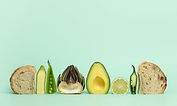Swallowing Problems During Cancer Treatment

Cancers in the mouth, throat, and esophagus, and cancer treatment can sometimes cause trouble with swallowing. Swallowing problems may include choking or coughing while eating, the inability to swallow, pain while swallowing, or a feeling that food is stuck in the throat. Sometimes pain resulting from chewing or stiffness also can become an issue (1, 2).
Notify your doctor immediately if you develop swallowing issues, cough, or choke while eating and drinking.
Your doctor may refer you to a speech-language pathologist to evaluate your swallowing ability. A speech therapist can give strategies and teach you how to swallow and what type of consistencies and textures your foods and drinks are best for you.
Strictly follow your speech-language pathologist’s instructions for any special swallowing techniques and food consistencies. You may be able to consume thick fluids easier than thin liquids - a thickener agent recommended by a speech therapist is often used.
Odynophagia (Pain When Swallowing)
According to the National Center for Biotechnology Information at the US National Library of Medicine, receiving radiation therapy on your chest or neck brings another side effect. It is common to start having pain when swallowing after 2 to 3 weeks of starting radiation therapy. You may feel soreness and bump-like when passing foods; this is called odynophagia.
Painful swallowing may be treated with medications to reduce inflammation and pain. Using throat sprays to numb the throat and provide short-term pain relief. Ask your doctor about what medications are best for you.
Nutrition Strategies to Manage Swallowing Difficulties
-
Eat 5-6 small meals per day if needed instead of 3 large meals.
-
Puree or mash foods until they are soft to make them easy to swallow.
-
Moisten foods with butter, milk, gravy, sauces, and dressings.
-
Eat small bites at a time and chew foods thoroughly.
-
Drink beverages with meals, sips of liquid between bites of food, and use a straw.
-
Choose foods high in calories and protein.
-
Drink nutritional supplements and milkshakes.
What to Eat with Swallowing Difficulties
-
Pureed thick-liquid diet
-
Greek yogurt
-
Cottage cheese and ricotta cheese
-
Casseroles with cheese and beans
-
Pureed meats including chicken, turkey, fish
-
Slurry cooked cereals like instant oatmeal, cream of rice and cream of wheat
-
Applesauce, and other mashed fruits like mashed bananas
-
Mashed potatoes or sweet potatoes, and other mashed vegetables
-
Thickened nectars and thick shakes
-
Honey, syrups, and butter
-
-
Mechanical soft diet
-
Greek yogurt, milk, cheeses, sour cream
-
Tuna, salmon, trout, and other types of fish
-
Ground meats
-
Eggs
-
Tofu
-
Beans, peas, lentils
-
Soft breads
-
Pasta, rice
-
Hot and cold cereals
-
Pancakes, waffles
-
Bananas and fruit cups
-
Soft, well-cooked vegetables
-
All beverages
-
What to Drink with Swallowing Difficulties
When you cannot eat solid foods, shakes can give essential nutrients, enough calories, and protein to replace a meal in a form of liquid.
-
Milk and plant-based milks
-
Hot and cold cocoa drink
-
Fortified milk
-
Coconut water
-
Fruit juices
Shakes
When eating is not appealing, shakes can give essential nutrients and enough calories and protein to replace a meal. Using a blender at home, consider preparing nutritious shakes with milk or plant-based milk alternatives, protein powder, fruits, nuts, and natural nut butter like peanut butter, cashew butter, and almond butter. You also can add yogurt, avocado oil, oats, flaxseeds, greens, hemp seeds, avocado, fruits, or fruit juices.
-
Milkshakes
-
Smoothies
Oral Nutrition Supplements (ONS)
Oral nutritional supplements (ONS) can be part of the nutrition care plan and intervention to help reach dietary goals by adding calories, protein, vitamins, and minerals to a daily diet when people can get their nutrition goals with food alone.
Nutrition Support
Your care team may recommend nutrition support if you cannot get enough nutrition from eating. Nutrition support provides calories and other nutrients through tube feeding routes instead of using the normal process of eating by mouth.
Nutrition support may be used short-term or long-term. Some tube feeding infusions require continuous feedings, others intermittent infusions at specific hours, and others can be given in smaller volumes at once throughout the day. If that is the case, your healthcare team will discuss the risks and benefits of nutrition support. Your dietitian will consider your symptoms, weight change, and treatment plan to decide if your nutrition support is adequate (4).
Foods and Drinks to Avoid
-
Any consistencies recommended by a speech therapist or doctor to avoid
-
Rough, coarse, and crunchy foods
-
Nuts, crackers, dry cereal, and raw fruits and vegetables may irritate your throat and esophagus and should be avoided.
-
-
Citrus foods
-
Oranges, grapefruit, lemons, limes, and tomatoes may cause increased discomfort in your throat and esophagus.
-
-
Acidic foods
-
Spicy foods
-
Fizzy soft drinks
-
Alcohol
-
Tobacco
Related
References
1. Dysphagia Section, Oral Care Study Group, Multinational Association of Supportive Care in Cancer (MASCC)/International Society of Oral Oncology (ISOO) et al. “Swallowing dysfunction in cancer patients.” Supportive care in cancer : official journal of the Multinational Association of Supportive Care in Cancer vol. 20,3 (2012)
2. Denaro, Nerina et al. “Dysphagia in Head and Neck Cancer Patients: Pretreatment Evaluation, Predictive Factors, and Assessment during Radio-Chemotherapy, Recommendations.” Clinical and experimental otorhinolaryngology vol. 6,3 (2013)
3. Nesheiwat Z, Akbar H, Kahloon A, et al. Radiation Esophagitis. [Updated 2022 May 29]. In: StatPearls [Internet]. Treasure Island (FL): StatPearls Publishing; (2022)
4. Ganger, D, and R M Craig. “Swallowing disorders and nutritional support.” Dysphagia vol. 4,4 (1990): 213-9. doi:10.1007/BF02407268
5. “Swallowing Problems: Managing Cancer-Related Side Effects.” American Cancer Society, https://www.cancer.org/treatment/treatments-and-side-effects/physical-side-effects/eating-problems/swallowing-problems.html.
6. “Difficulty Swallowing or Dysphagia.” Cancer.net, 6 Jan. 2012, www.cancer.net/coping-with-cancer/physical-emotional-and-social-effects-cancer/managing-physical-side-effects/difficulty-swallowing-or-dysphagia.
7. Cristofaro, M.G., Barca, I., Ferragina, F. et al. The health risks of dysphagia for patients with head and neck cancer: a multicentre prospective observational study. J Transl Med 19, 472 (2021).
8. Anne Coble Voss, et al. Oncology Nutrition for Clinical Practice. Chicago, Academy Of Nutrition And Dietetics, 2021.





